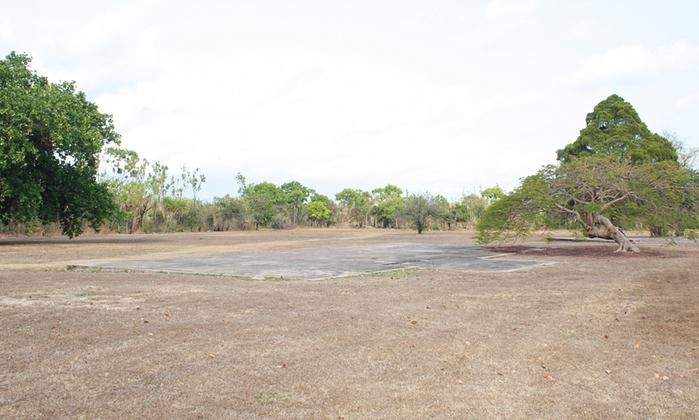|
Retta Dixon home failed to protect children, royal commission finds
By Helen Davidson
Operator Australian Indigenous Ministries did not safeguard children following reports of rape, sexual touching and brutal physical assaults Australian Indigenous Ministries failed to meet its obligations to protect children, including from sexual abuse, when it ran the Retta Dixon home for Aboriginal children and mothers in Darwin for more than 40 years, the child abuse royal commission has found. The commission was unable to make a finding on whether the commonwealth government also failed in its obligations. “However, a question remains as to whether in the circumstances the commonwealth should have taken remedial action to protect the residents of the home from sexual abuse,” it said. The findings, released on Wednesday, were based on a public hearing held in Darwin in late 2014, which heard from men and women abused as children between 1947 and 1980 at the Retta Dixon home. The institution was established in 1946 “for half-caste children and mothers”. Many who were taken to Retta Dixon under what was then Australian law now identify as members of the stolen generation. “The sexual abuse included allegations of rape, sexual touching and brutal physical assaults,” said the report. The public hearing examined the responses of Australian Indigenous Ministries (Aim) – formerly known as the Aborigines Inland Mission – and found repeated instances of abuse being ignored by Aim employees. Some witnesses reported to the commission that the superintendent, Mervyn Pattemore, caned them for lying when they reported abuse. Before 2013 Aim had no guidelines for working with children or responding to abuse complaints and, Before 1980, it did not provide any training on detecting or responding to abuse. Aim has accepted both findings. The report said: “These failings lead us to conclude that, in respect of the matters the subject of the case study, Aim did not meet the obligations that it had to children in its care, including protection from sexual abuse.” It also noted that Aim made no attempt to offer redress to any of the Retta Dixon home victims until the royal commission began. Aim has since published an apology in the Australian newspaper, spoken to a former employee and abuse perpetrator about giving police information, and resolved to set up a financial compensation scheme. It initially sought to claim it could not afford to pay compensation because it would mean curtailing its missionary work. The royal commission also examined the responses of the Northern Territory and federal governments, and NT police. Documents showed the commonwealth was aware of a house-parents conviction of abuse at the time, but there was no evidence it knew of other allegations or a 1975 prosecution of another house-parent, Donald Henderson. The royal commission was told during the hearing in 2014 that Henderson was a main perpetrator of abuse and worked at the home for 11 years. Henderson did not give evidence. The NT police had “no policies, guidelines or general orders that specifically dealt with the investigation of historical sexual offences or issues peculiar to Aboriginal and Torres Strait Islander witnesses” before 2003, the report found. The home was overseen by a non-government superintendent, but the commonwealth was actively involved in its running and was guardian to many of its residents. The royal commission is currently hearing evidence in Melbourne about abuse at a Victorian youth centre. Young and vulnerable children had to bow to older and bigger boys as well as staff who acted like “top dogs” at a Victorian youth centre, the inquiry heard on Wednesday. A long-time Turana youth officer, Ashley Cadd, said he saw staff members give boys duties and then “ride the boy all day long”. “‘I’m the top dog and you’re only a peasant’ – that’s the sort of thing that came through,” Cadd told the royal commission. “’You’ll do as I tell you. You’ll jump when I tell you and if I say go and stick your head in the toilet, that’s what you’ll do.’” The commission’s public hearing into abuse at three Victorian state-run youth centres has heard there was a culture that “laggers” at Turana would get a beating. “The perpetrators could have been older boys, bigger boys, and the other boys would bow to their peers and say ‘you tell, we fix’,” Cadd said on Wednesday. Cadd said he only became aware that a significant number of youths had been sexually abused after he left Turana. “Everything was a closed shop,” he said. Cadd said he had “Mickey Mouse” training before starting work at Turana in 1968, and there were no instructions in the staff manual for dealing with sexual abuse. “You had the idea that departmental boffins thought these things don’t happen,” he said. Cadd said the department had very little interaction and oversight of the boys, and were mainly concerned with the facilities and keeping maintenance costs low. He said the power to make decisions regarding the boys’ welfare often rested with people who had no concept of their needs, behaviour or circumstances. “There were no policies or procedures in place for boys who’d indicated or reported child sexual abuse,” he said. “It didn’t exist; don’t you know, it just never happened in polite conversation.”
|
.
Any original material on these pages is copyright © BishopAccountability.org 2004. Reproduce freely with attribution.
